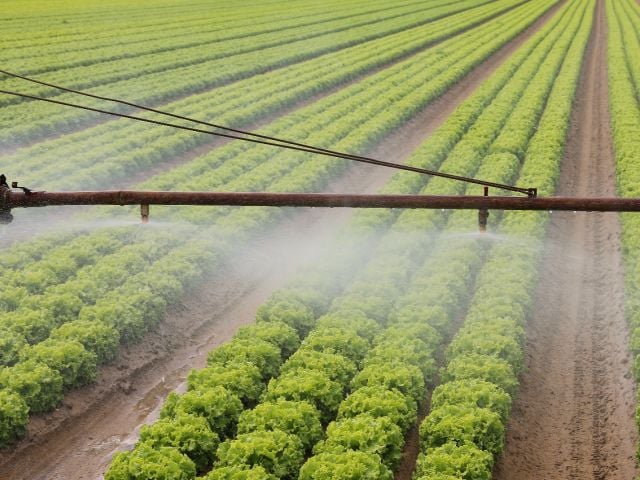Associated Press, Terence Chea
Published August 2, 2005
Some of California's largest farms receive millions of dollars in federal subsidies by "double dipping" - using government-subsidized water to grow subsidized crops such as rice and cotton, according to a watchdog group's analysis.
The study released Tuesday by Environmental Working Group found that the 6,800 farms in the Central Valley Project, the nation's largest federal water supply project, received $538 million in combined water and crop subsidies in 2002, the last year in which both figures are available.
The analysis found that nearly one fifth - or 1,228 - of Central Valley farms "double-dipped" in 2002, receiving water subsidies worth $122 million and crop subsidy checks for another $122 million. Some dairy farmers "triple dipped" - using subsidized water to grow subsidized corn to feed cows that produce subsidized milk or cheese.
"What was intended to be a support program for small family farmers has turned out to be a corporate welfare program for big agribusiness operations," said Bill Walker, vice president for EWG's West Coast office, which conducted the analysis. "When you add all of the other federal water
projects around the West, it's clear that the Central Valley Project can only be the tip of the iceberg."
But the state's farming interests disputed the study's findings. They took issue with how the study calculated the value of federal water subsidies, and said the only break farmers get is that they don't have to pay interest on the $3.6 billion in public money used to build the Central Valley Project in 1936.
"The notion that people are getting rich off subsidized water on the backs of the American taxpayer is just a completely overblown exaggeration," said Mike Wade, executive director of the California Farm Water Coalition.
Tupper Hull, a spokesman for the San Luis and Delta-Mendota Water Authority, which oversees 2.1 million acres of irrigated farmland in the San Joaquin Valley, called the study a "completely ridiculous analysis" and said the federal government's investment in the Central Valley Project has generated jobs, economic growth and food for the country.
"There have been enormous benefits to California and the nation by virtue of lands that have been brought into agricultural production," Hull said.
An EWG study released in December found that the Central Valley Project generated up to $416 million in subsidized water to California agribusiness, with the top 10 percent getting two-thirds of the water in 2002. The value of the water subsidies was based on a 2003 state and federal study that estimated the market price of San Joaquin River water, Walker said.
The latest study matched the farm names from the water subsidy analysis with the U.S. Agriculture Department's database of crop subsidy recipients.
The study found that more than 1,800 farms received water subsidies in 2002 and crop subsidies for at least one year between 1995 and 2004. And the distribution was uneven - the top 5 percent received more than one-third of the crop subsidies. The top 10 "double dippers" received between $1.5 million and $2.7 million in combined subsidies, while the average subsidy was about $200,000 per farm.
The EWG study comes as federal lawmakers prepare to debate the next farm bill that will determine future farm subsidies, and the U.S. Bureau of Reclamation drafts new water contracts for Central Valley irrigation districts.
"These contracts make it impossible for California to plan sanely and fairly for the water needs of the rest of the state," Walker said.
In recent years, various government agencies, politicians and watchdog groups have criticized federal farm subsidies, but critics believe that international pressure could force change. Earlier this year, the World Trade Organization ruled that the U.S. cotton subsidies were unfair to Brazilian farmers, and Uruguay farmers are considering a similar challenge to American rice subsidies.
Rep. George Miller, D-Martinez, an outspoken critic of farm subsidies, said Congress should put a stop to "these unjustifiable giveaways of the public's precious water and hard-earned money."
"It doesn't make any economic sense," Miller said, "and it encourages waste when the rest of us are conserving water."



.jpg?h=827069f2&itok=jxjHWjz5)